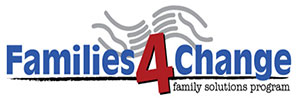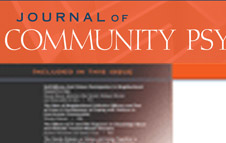The Family Solutions Program has used since 1993 the most quantifiable indicator utilized by programs or services that provide intervention for juvenile offenders – recidivism, or the percentage of re-offenses. This is a bold decision because research is clear that there are a myriad of risk factors that lead to delinquency – school failure, family conflict, child abuse and neglect, poverty, learning problems, and negative peer influences. These risk factors are not easily overcome in any intervention program when the conditions themselves may have developed over many years. Psychological trauma, social skill deficits, and academic failure are severe problems that are difficult to overcome.
In addition to recidivism, self-report measures are used to assess family functioning, parent child communication, and parent stress prior to and following program completion to examine changes in these dimensions due to FSP completion. Finally, family participation rates are monitored to examine the dosage of these interventions as it relates to effectiveness (e.g., are families attending each session and responding to program activities?). Session evaluation questionnaires are administered in every FSP cycle to solicit family feedback on the effectiveness of group leaders, the quality and benefit of the sessions and to revise content or program structure where needed.

Effectiveness of the Family Solutions Program for Truant Students and Their Families presented in Prague, Czech Republic.
Statistical analysis demonstrates that a child who is placed on probation is 9.3 times more likely to re-offend than a child referred to the FSP who graduates. Quinn, W.H. and VanDyke, D. (2004). A multiple family group intervention for first-time juvenile offenders: Comparisons with Probation and Dropouts on Recidivism. Journal of Community Psychology, 32, 177-200. These differences between juvenile first offenders who become Family Solutions Program graduates and juvenile first offenders placed on probation or drop out hold for race and gender. In other words, regardless of age or race, youth who complete the Family Solutions Program all re-offend at a lower rate than juvenile first offenders counterparts placed on probation.
Two doctoral dissertations were conducted on the evaluation of the Family Solutions Program in 2005. First, parent stress was significantly reduced among 111 parents between the inception of the Family Solutions Program and 3 months following the Family Solutions Program Caldwell, C. Horne, A., Davidson, B. & Quinn, W.H. (2006) Effectiveness of a multiple family group intervention in reducing stress in parents of juvenile first offenders. Journal of Child and Family Studies. This is important because it is a well accepted notion that high parental stress increases the probability of child abuse. Second, a replication study in Augusta, Georgia found that family functioning was significantly improved and recidivism rates were significantly reduced for families that attended eight or more sessions compared to families who attended less often. Stoddard, J.L. (2005). Treatment adherence and recidivism: An evaluation of a multiple family group intervention for first time juvenile offenders. Doctoral dissertation. University of Georgia.
In addition, youth complete a final assignment in the Family Solutions Program in which they must write a minimum one page paper on how FSP affected them. Youth consistently report the improvement in their relationship with their parents, skills in conflict resolution, and more optimism about their futures. Parents provide testimonials at the final session of FSP in which they report having learned parenting skills, recognizing the important role they play in the lives of their children, and more positive communication with their children.
Most recently we have examined the effectiveness of the FSP as a school-based program. In Columbia, South Carolina, 50 students were referred to FSP as a result of an expulsion hearing in the 2006-2007 academic year. Of the students who completed FSP, only one was eventually expelled.
Testimonials
In April 2008, the Family Solutions Program was recognized by the Office of Juvenile Justice and Delinquency Prevention Model Program Guide as a Promising Program. The Model Program Guide is designed to assist practitioners and communities in implementing evidence-based prevention and intervention programs that can make a difference in the lives of children and communities. The MPG database of evidence-based programs covers the entire continuum of youth services from prevention through sanctions to reentry. Programs are recognized according to the research that is collected on the program. A designation of “Promising” demonstrates empirical findings using a reasonable conceptual framework.

Irving, Texas has been offering the Family Solutions Program since 2009. Recently, Mr. Rodney Bergeron sent a letter of gratitude and expression of future success with FSP to Families4Change, Inc.
Dr. Quinn,
I want to let you know that I am retiring from the Irving Police Department on 12/21/2015. In my retirement, I am going to work as a Special Investigator for Child Protective Services covering 6 rural counties west of the Dallas/Ft. Worth area. I will have the opportunity to make some contacts with school districts, law enforcement, DA’s offices, etc. in that region. I will definitely promote the Family Solutions Program as I make these new contacts. If anyone shows interest in the program, I will refer them to you. Thank you so much for the development of this program. I’ve watched it help so many families here in Irving. In fact, as I have led groups, I have taken things home that has enhanced the relationships in my own family. I’m a firm believer in this program. So, if you ever have someone who would like to speak with someone who has worked with the program, please don’t hesitate to give them my contact information. I am happy to tell everyone that I can about the benefits of the Family Solutions Program.
Perhaps the best researched MFG (multi-family group) is William Quinn’s Family Solutions Program.








You must be logged in to post a comment.